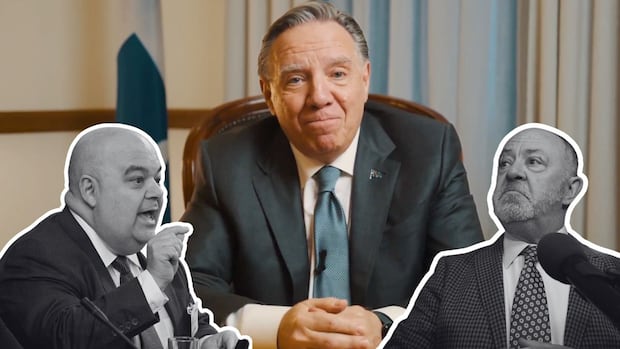One week after they stopped teaching medical students amid stalled contract negotiations, Quebec family doctors announced Thursday they were ending their teaching boycott.
The move comes a day after Quebec Premier François Legault warned the province’s doctors and medical specialists that if a deal was not reached by Friday, his government would enact a special law to force through changes to compensation and put an end to pressure tactics.
That law would also include measures to prevent an exodus of doctors to other provinces, Legault told reporters Thursday morning at the National Assembly, without elaborating further.
In a news release explaining the end of its boycott, the Fédération des médecins omnipraticiens du Québec (FMOQ) said it “heeded the call made by the leader of the Quebec Liberal Party, Pablo Rodriguez,” but was critical of the premier and his government.
In a publication on X, Rodriguez enjoined the doctors to end pressure tactics to allow negotiations with the government to resume.
“François Legault must not table his special law,” Rodriguez wrote in French.
“The best agreement is an agreement that is negotiated for the good of all Quebecers.”
WATCH | Legault says special law is for Quebecers, not against doctors:
Quebec ‘won’t give in’ to doctors as premier threatens bill to end conflict over their pay
François Legault’s government is planning to table a special legislation Friday at the National Assembly to stop doctors’ pressure tactics and move forward with changes to the way they’re compensated. In a video, Legault said he’s not doing this against doctors but for Quebecers.
The FMOQ said it would have preferred for Legault to “fully play his role as premier,” saying he should have “involved himself in the discussions to promote an agreement or mandate an independent arbitrator.”
Instead, the FMOQ said that less than 24 hours after the government tabled its “final offer,” it “chose to announce special legislation.”
The federation reiterated its willingness to continue intensive negotiations with the government but expressed disappointment the government didn’t wait for its response before threatening a special law.
Meanwhile, Legault said that unless significant advances are made with family doctors and medical specialists, the government won’t budge.
“It is time for a government to stand up, to finally change the method of remuneration,” he said, repeating the goal was to improve access to health-care services for Quebecers.
Health Minister Christian Dubé, said that while he understood the doctors’ resistance to change there’s an “urgency” to act.
“So today, as a government that is responsible for patients, responsible for the students, we take action, that is what we do tomorrow,” he said.
The government’s proposed use of legislation to end the doctors’ pressure tactics was the subject of criticism among opposition parties, with Québec Solidaire health critic Vincent Marissal telling reporters the Coalition Avenir Québec (CAQ) was using the National Assembly as its “marshal’s baton.”
He said the government’s special law amounts to invoking closure — a parliamentary procedure that limits the time devoted to debate on a motion or bill and fast-tracks its adoption.
“[This] will only further poison our already rotten relationships with doctors. I don’t see anything good for patients in all this,” said Marissal.
The Fédération des médecins spécialistes du Québec (FMSQ), which represents medical specialists, has already rejected the province’s fourth offer to doctors that promised to address concerns over performance-based pay under Bill 106.
The FMOQ, however, has yet to present the government’s latest offer to its members for a vote.

